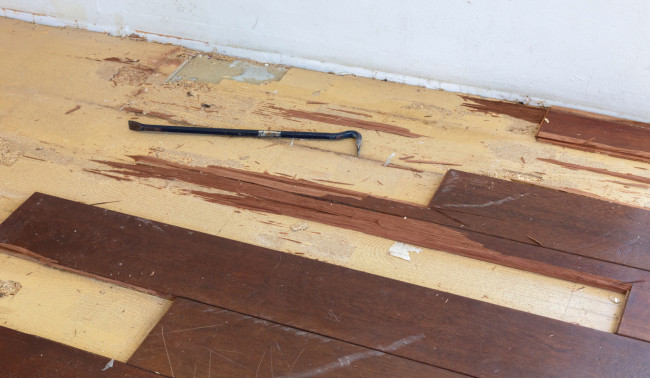Can I be evicted for subletting my co-op apartment?
- The board can't change the rules in the middle of an approved sublet
- Check your co-op's proprietary lease where sublet rules are outlined
- New rules may impact your ability to renew or extend your arrangement

Co-ops are generally very restrictive when it comes to subletting and a very flexible arrangement suggests there is no sublet policy in place.
iStock
For the past six years, the board of my co-op has allowed me to rent out my apartment. The arrangement I have with my tenant is that I can also use the place when I visit NYC so I'm not entirely absent. A new board has been voted in and are threatening to end my lease, accusing me of unauthorized subletting. Can I fight this?
The first step in this scenario is to establish whether the co-op has any type of written sublet policy, our experts say. This will require taking a look at the proprietary lease.
“There is usually a general provision regarding subletting in the proprietary lease and then the details of that policy—time periods, fees, and fines—are normally in the house rules,” says Dean Roberts, an attorney at the law firm Norris Laughlin.
Roberts says it is “highly unlikely” you could be terminated for an existing sublet policy, especially if it's been allowed for the last six years. A new board does have the right to implement a new sublet policy, but an existing subtenant would typically be allowed to stay in the apartment for the remaining term of the sublease or, if there’s no end date, a reasonable amount of time.
A unique arrangement for a co-op
The scenario described, where you are subletting your apartment but also using it as a pied-à-terre is “highly unusual in a co-op,” says Deanna Kory, a leading broker at Corcoran. Co-ops are generally very restrictive when it comes to subletting and many co-ops have primary residence requirements.
“Some proprietary leases have a residency requirement saying you can’t sublet for more than a certain period of years and you have to reside there for a period of time before you sublet,” says attorney Christoper M. Tarnok, a partner at DL Partners.
Kory says one of the reasons buyers like co-ops is because they are largely owner occupied.
An unusually flexible sublet arrangement suggests there is either no policy in place or a very inconsistent one. “Therefore the board would most likely have to implement a formal sublet policy which could not be applied retroactively,” Roberts says.
Contesting the proprietary lease termination
In order to sublet your apartment six years ago, you presumably applied to the board seeking consent. Board approval is typically needed in these situations. “Hopefully you have something in writing from the board,” Tarnok says.
The board cannot change the rules in the middle of an existing approved sublet. This would be a breach of contract. So, Roberts says there are two strategies you can take next. “The first is simply to continue with the status quo and let the board take some form of action, like sending a letter or commencing litigation,” he says.
An alternative, and more proactive approach, would be to have an attorney send a letter on your behalf stating the reasons why the right to sublet should be allowed. Roberts says, in these situations he favors letting the co-op take the first action, but it’s also possible an attorney's letter might prompt the board to revise their objections.
“It is highly unlikely that the co-op would prevail in a housing court litigation based on these facts,” Roberts says.
A board has the right to change the rules
A board—newly voted in or not—has the right to change the sublet or pied-à-terre rules for the co-op. There might be concerns over theft or security which have prompted a shift in policy. As long as the board is enforcing the rules equally and not infringing on your rights, they are entitled to make changes. “That’s living in a co-op—you are beholden to the enforcement of these rules and regulations,” Tarnok says.
While the changes may not affect your current subtenant agreement, it will likely have an impact if you want to renew or extend the arrangement in the coming years. If you don't like changes proposed by the board, the obvious route to having your voice heard is to get more involved in how the building is run.
“Things change in buildings and when you are buying into a co-op, if you don't like it, you can run for the board,” Tarnok says.
Trouble at home? Get your NYC apartment-dweller questions answered by an expert! Send us your questions at experts@brickunderground.com. For more Ask an Expert questions and answers, click here.
You Might Also Like




























